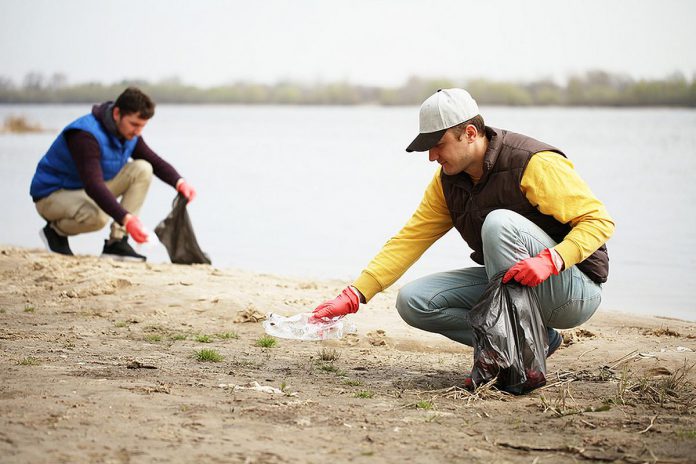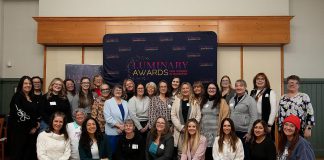The Town of Cobourg is inviting volunteers to hit the beach in September and participate in the inaugural Great Lakes Coastal Cleanup.
Cobourg is one of six communities in Ontario that will participate in the event organized by the Great Lakes and St. Lawrence Cities Initiative and funded by the Ontario government.
The Great Lakes Coastal Cleanup takes place on Sunday, September 28, which is World Rivers Day — an annual global event founded by Canadian conservationist Mark Angelo celebrated on the fourth Sunday of September to recognize the importance of rivers, raise public awareness about their values, and encourage stewardship and conservation.
“As co-chair of the Mayor’s Commission on Economic Transformation for the Great Lakes and the Saint Lawrence Cities Initiative, I am incredibly proud that the Town of Cobourg has been selected as a partner in the first-ever Great Lakes Coastal Cleanup,” said Town of Cobourg Mayor Lucas Cleveland in a statement. “It is imperative that we all do our part to protect the Great Lakes and raise awareness about this irreplaceable natural resource.”
The Great Lakes Coastal Cleanup aims to help combat the large amount of waste that annually pollutes shorelines and waters. Pollution in the Great Lakes has a negative effect on natural ecosystems, wildlife, and clean water that is needed across Canada, a media release noted.
The Cobourg Great Lakes Coastal Cleanup runs from 11 a.m. to 1 p.m. on Sunday, September 28. Volunteers are asked to meet at the Cobourg marina building, located at 103 Third St., at 11 a.m. to sign-in, collect supplies, and have a coffee before embarking on the cleanup.
The cleanup efforts will focus on Victoria Beach, Lucas Point Park, and the Waterfront Nature Park (west rocky beach). The Town of Cobourg will provide all the supplies needed for registered volunteers to pick up debris.
Volunteers can register for the cleanup online at www.cobourg.ca/coastalcleanup or by calling the mayor’s office at 905-372-4301 ext. 4305.
With funding from the Ontario government, the Great Lakes and St. Lawrence Cities Initiative will bring together volunteers in six Ontario communities to collect and catalogue litter at beaches, parks, and other shoreline areas of Lake Superior, Lake Huron, Lake Erie, and Lake Ontario, along with the St. Lawrence River.
In addition to Cobourg, The Great Lakes and St. Lawrence Cities Initiative is partnering with Thunder Bay, Chatham-Kent, Owen Sound, Collingwood, and Kingston to unite people from across the province who are passionate about keeping the lakes clean.
The Great Lakes Coastal Cleanup website notes that every piece of litter removed helps restore vital habitats, protects wildlife, and ensures safe, swimmable, and drinkable water for over 40 million Canadians and Americans.
Over 10 million kilograms of plastic enter the Great Lakes each year, most of which is single-use plastic such as bottles, wrappers, and cigarette butts (one-third of the plastic in the Great Lakes is cigarette butts). The plastic eventually breaks down into microplastics, which can impact the health of both wildlife and humans. Fish, birds, and turtles can also ingest or get tangled in litter.
The data collected from the Great Lakes Coastal Cleanup will be entered into the TIDES (Trash Information and Data for Education and Solutions) public data system at www.coastalcleanupdata.org, managed by the Ocean Conservancy, and will also be shared with the Ontario government.
According to the Ocean Conservancy, more than 19 million people at almost 230,000 locations around the world have collected over 395 million pounds of trash as part of the International Coastal Cleanup Initiative.
As for the Great Lakes and St. Lawrence Cities Initiative, the binational coalition of more than 325 municipal and regional Canadian and American mayors and local officials is working to advance the protection and restoration of the Great Lakes and St. Lawrence River Basin.
For more information about the Great Lakes Coastal Cleanup, visit glslcities.org/great-lakes-coastal-cleanup/.


























